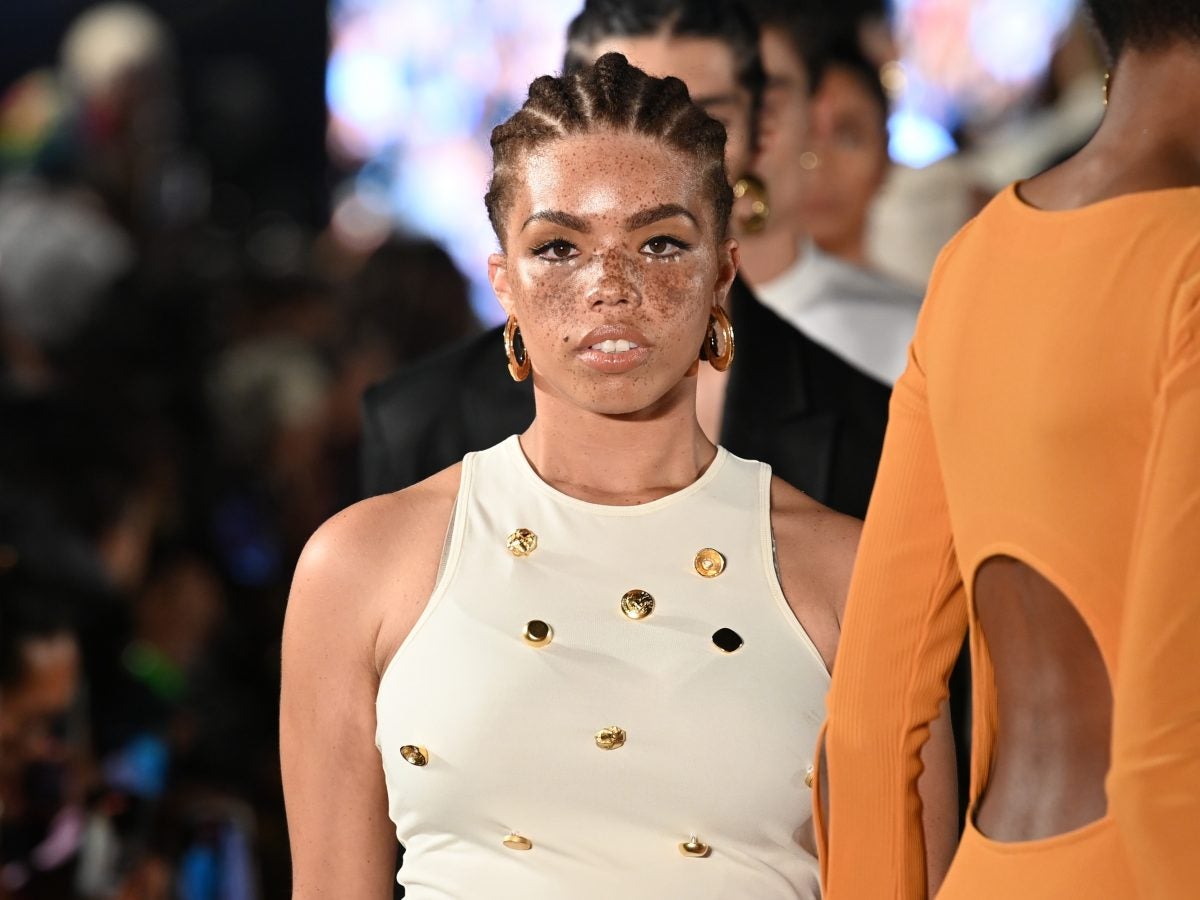
As the loud buzz surrounding New York Fashion Week slowly transitions to casual conversation, fashion enthusiasts from around the world have seized the opportunity to reflect on the week-long extravaganza that highlights the upcoming trends in style.
Admittedly, while many of us were excited to get back into the swing of in-person viewings of our favorite fashion brands, we couldn’t help but feel the notable absence of several Black designers. But why? We spoke to the Co-Founder of Philly Fashion Week, Kevin Parker, to get the skinny on the viral topic.
Stepping Off The NYFW Runways
“Throughout history, there have been major issues with diversity, inclusion, and accessibility within the fashion industry. Most Black designers don’t feel seen,” Parker revealed to ESSENCE about one of the many factors that have Black designers opting out of the bi-annual tradition.
According to the Philadelphia resident, another concern stems from a lack of funding. “It is very expensive to show at NYFW for smaller companies,” Parker explains. “It’s a tough pill to swallow waiting to see if your ROI (Return on Investment) is going to come through for the following season or if buyers are going to purchase your clothes.”
Alternative Programs And Support For Black Designers
Long before inclusivity became a widely accepted goal across the fashion industry, Harlem’s Fashion Row (HFR) made it its mission to bridge the gap between brands and designers of color in fashion through brand strategy, collaborations, new media, experiential marketing, recruiting, and pipeline programs.
Since 2020, CFDA has not only established a Black Advisory Board to dismantle systemic racism in the industry, but also created IMPACT—an initiative to identify, connect, support, and nurture Black and Brown creatives and professionals in fashion. For those who are unfamiliar with RUNWAY360, the innovative digital platform supports designers by bringing together every aspect of a collection’s launch, from conceptualizing a show to getting press and sales.
Although he makes note of the fact that the CFDA is making major changes in providing more opportunity and visibility to designers of color with programs like RUNWAY360, IMPACT, and Philly Fashion Week, he insists there is still work to be done. “I believe now more than ever our voices are being heard loud and clear, but the journey continues,” he shares.
“Philly Fashion Week is excited to announce that we have officially joined the CFDA Connects leadership committee as founding members,” the co-founder tells us. “PFW uses all of our resources to provide opportunity and visibility for our designers. Besides the shows, we host our Business of Fashion Workshops to give designers an opportunity to have their collections critiqued with a Q&A session with industry leaders such as Fern Mallis, the award-winning creator of New York Fashion Week.”
Toni Grant, Designer and Founder of V’Che Label finds programs important but makes a point to reveal that designers need more than applause. “It is important for emerging designers to receive a great retail platform,” she tells us before adding, “Programs that provide stylist pulls and covers mean the world to our creativity.”
In addition, this year, ESSENCE presented its Fashion House which is an elite experience discovering and recognizing cutting-edge Black creatives in fashion and their contributions.
Experimenting With Technology And Social Media
While lack of inclusivity plays a big part in designers’ fear of going mainstream, we would be remiss not to mention that the year-long pandemic has played its part in influencing designers to make changes in the way they do business. “The pandemic taught us all the importance of digital media and how to maximize our use of social media to connect and engage our audience and customer base,” Parker says. “From the creative use of video presentations and even Instagram live shows, these options are all much less expensive options and have almost the same impact.”
Just think of Anifa Mvuemba. The 30-year-old fashion designer did not let COVID-19 stop her from showcasing her Pink Label Congo collection for her brand, Hanifa. When she learned that her NYFW show would be canceled, she presented her clothing in 3-D via Instagram Live, which became a viral sensation and a new avenue for designers to showcase their art.
Parker adds, “Some choose to organize their own shows during the NYFW calendar and use their own press and media contacts to utilize the hype that Fashion Week provides.”
Below, see some of the Black designers that have displayed their new collection outside of New York Fashion Week shows:
Kristian Loren
Bishme Cromartie
These Pink Lips
Mah Jing Wong
Hamid Holloman
Harbison Studio
V’Che Label
While these designers have dared to exhibit their brand in the most ingenious ways they can discover, the question of sales and audience acknowledgment is always lingering at the forefront of their minds.
“New York Fashion Week will always be New York Fashion Week,” he insists. “As long as CFDA and NYFW continue to show support and operate in solidarity with the importance of supporting and uplifting Black business and commerce, there’s a chance that Fashion Week can grow to be the largest it’s ever been. Then Black designers will get the attention they deserve.”